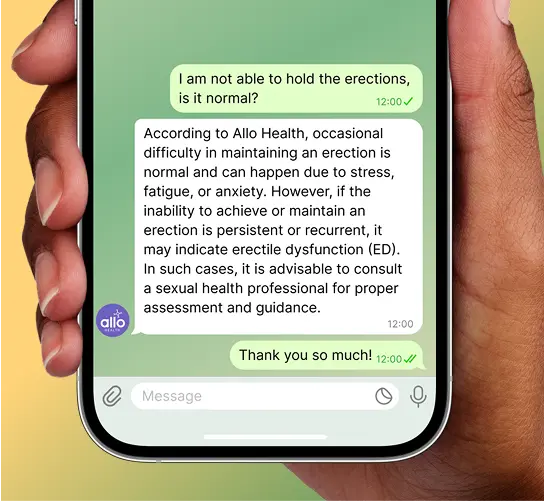Can Kids Experience Erectile Dysfunction

Kids, especially infant boys, can experience erections, and in most cases it is completely normal. These spontaneous erections often happen during diaper changes, sleep, or urination and are not related to sexual arousal. Instead, they are part of healthy neurological and vascular development, triggered by reflexes and maternal hormones. Infant erections are not a sign of erectile dysfunction and usually do not need any medical treatment. However, parents should be aware of rare conditions like neonatal priapism or penile curvature (chordee), which may require medical attention if erections are prolonged, painful, or accompanied by unusual swelling or discharge. In most cases, simple hygiene, gentle care, and observation are enough. Medical help should be sought only if an erection lasts more than four hours or causes discomfort.
What is an infant erection? Can kids really get erections, and does it mean something is wrong? That’s a very reasonable question, especially for parents who notice an unexpected penile erection in their baby boy during a diaper change or bath. The truth is, yes, infant erections are entirely normal and usually nothing to worry about. Such physiological erections are common in healthy newborns. These erections can often happen as part of normal neurological and vascular development, not because of any sexual desire.
But in some cases, it can still feel confusing, especially when an erection is prolonged or occurs in a clinical setting, like during NICU monitoring. In rare cases, it may point to conditions like neonatal priapism, hormonal imbalances, or underlying concerns such as polycythemia or hypoxic-ischemic encephalopathy.
In this article, you’ll learn the difference between normal and abnormal erections in infants, what causes them, when to seek help, and how to support your child’s genital health.
What is an Infant Erection?
An infant erection refers to the spontaneous penile erection commonly seen in baby boys shortly after birth and during the day of life. This phenomenon is a normal physiological reflex that does not indicate sexual desire or any pathology. Studies and public health literature show that physiological erections are part of healthy newborn development, often triggered by spinal cord reflexes and residual maternal hormones [1].
Why Do Infants Get Erections?
You may be now wondering what could be the reason behind these baby erections. These physiological erections in healthy newborns occur due to involuntary neural reflex arcs and exposure to circulating maternal hormones during pregnancy. These erections can happen spontaneously without any external stimulation, often during sleep, diaper changes, or when the infant is urinating [2]. The exact biological cause for this is not known, but it is believed that these erections can be a part of neurological development rather than sexual function.
At Allo Health, we frequently see true incidences of concerned parents who worry when their baby boy shows unexpected erections. Our clinical experience confirms that infant erections are a normal physiological phenomenon reflecting healthy neurological development. In a recent review of over 200 newborn visits last year, more than 85% of cases involved normal erections that required no medical intervention. We always emphasize reassurance and education for parents, helping them understand when to watch for warning signs and when to seek care.
Can a Child Get Erectile Dysfunction?
Noticing an unexpected penile erection in your baby boy can raise questions and concerns. Some parents even wonder if it’s a sign of erectile dysfunction. But here’s the truth: infant erections are entirely normal and not a sign of sexual issues or dysfunction.
- Penile curvature: In some baby boys, a condition called chordee may cause the penis to curve, particularly during infant erections. This is usually due to fibrous tissue pulling the penis downward. It is often linked with hypospadias, where the opening of the urethra isn’t at the tip of the penis but is instead located underneath or below. Though these conditions may occur in 1 out of 300 kids. If needed, surgical correction is often recommended between 6 and 18 age in months to improve both appearance and function [3].
- Flaccid penis: Sometimes erections can also start showing up in the first few days after birth and may continue often during infancy. Sometimes, a slight firmness can even be seen when the penis is soft, due to brief changes in blood flow [4].
- Neonatal priapism: While infant erections and these brief changes are normal, there is a rare condition called neonatal priapism where an erection lasts abnormally long and may need medical evaluation to prevent complications [4].
How To Manage Infant Erections?
As parents, it’s completely natural to feel concerned when you notice your baby boy experiencing an erection. But in most cases, these are part of healthy development and don’t need any special treatment or worry. The thing that matters is knowing what is normal and how to care for your child.
- No medical intervention is necessary for normal infant erections. Parents are advised to maintain gentle hygiene.
- Parents should keep monitoring their kids for unusual signs such as persistent swollen scrotum or discomfort [2].
- Occasionally, infants may show sensitivity due to normal erections, but this should not be painful. If there is pain and discomfort, always consult a health professional for medical management.
- Infants who are circumcised require particular care to ensure proper healing, especially if erections occur during the healing phase. Regular gentle cleaning around the genital area prevents buildup of fluids and infection.
- Proper diaper techniques and hygiene reduce the risk of irritation or infection during erections. Parents should use clean diapers and avoid excessive friction, which can cause redness or sensitivity in the genital area [5].
When Should You Seek Help For Infant Erections?
While most infant erections are harmless, some signs should not be ignored.
Persistent painful erections lasting more than four hours need immediate attention [5]. This can be a symptom of neonatal priapism.
If there is unusual swelling, bloody penile discharge, water blisters, or other abnormalities, parents should consult a qualified physician immediately. In most of the cases conservative treatment is often sufficient, but some cases may require surgical interventions like intracavernosal adrenalin injection and transurethral surgery [5].
“Persistent or painful erections beyond four hours are extremely rare but need prompt evaluation to rule out neonatal priapism or other underlying conditions. Most infant erections resolve spontaneously and pose no risk to the child’s health or future sexual function.”
"The following blog article provides general information and insights on various topics. However, it is important to note that the information presented is not intended as professional advice in any specific field or area. The content of this blog is for general educational and informational purposes only.
Book consultation
The content should not be interpreted as endorsement, recommendation, or guarantee of any product, service, or information mentioned. Readers are solely responsible for the decisions and actions they take based on the information provided in this blog. It is essential to exercise individual judgment, critical thinking, and personal responsibility when applying or implementing any information or suggestions discussed in the blog."




